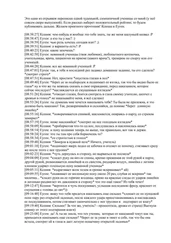All the same, he was full of pride. His mama had won the war. The Germans had lost it. Although oddly enough, Papa was German himself.
“Did you fight Mama?”
“No, I was already in the Soviet Union when the war began.”
“Why?”
“Because I cleared out of Germany.”
“Then what?”
“Then I chopped trees down.”
“Then what?”
“Then I met Mama.”
“Then what?”
“Then you were born.”
Born—he thought of it as something like boring a hole in the earth.
The way Granny’s lawn sprinkler did. The lawn sprinkler was a long pole with a pointed end that bored into the lawn. He wasn’t sure about the rest of it, but it was all something to do with earth.
On Sundays he got into bed with his parents. One Sunday he put a finger up his bottom and said, “Smell that!”
“Ugh!” cried his father, jumping out of bed.
An amazing discovery again—even your own shit smells bad.
Then they did morning exercises with hula hoops.
“Hoops are modern these days,” said Mama.
Mama was modern herself. Papa wasn’t so modern. He always wanted to keep his old things.
“These shoes are still all right,” he said.
But Mama said, “They’re not modern these days.”
Penetrating: the smell when Mama singed the chicken over the gas flame.
The good bit: Papa liked white meat best.
The incredible bit: to think that parents would have a midday nap of their own free will.
Later, a game of chess. Papa gave him a start by playing without his two rooks, but all the same he always won.
“Morphy could beat his father when he was six years old,” said Papa.
Well, that wasn’t so bad. Alexander was only four. He’d have to get to be five first, and after that there was still time. Plenty of time for him to beat his father at chess.
Weekdays: those were Monday to Friday. And also, as he now knew, there was First Friday and Second Friday. On Second Fridays he went to Granny’s.
Had to have a bath first. Comb his hair. And then, he’d guessed as much, Mama would bring out the scissors.
“You always have to snip at my hair when I go to see Granny.”
“Keep still, do!”
“But it tickles!”
That summed it up—the typical going-to-see-Granny feeling, well washed, in his bathrobe, little snippets of hair tickling the back of his neck.
“Off you go, then, lapotchka, ” said Mama.
Mama stood at the top of the stairs. Granny stood at the bottom of the stairs.
“Come along then, my little sparrow,” said Granny.
He turned and waved to Mama. That was meant to show her that she could go away now. He didn’t want her to hear Granny call him “my little sparrow.” And he didn’t want Granny to hear Mama call him “lapotchka.”
But Mama didn’t take the hint. Just stood there, nodding to him.
Slowly, very slowly, and clinging to the banisters, he made his way down, until the steps turned a corner and the broad staircase reached the hall, where the pink shell into which Wilhelm had fitted an electric lightbulb, no one knew how, always shone in the evening.
Granny’s world. Everything here was a little bit different. And he immediately began talking differently himself, kind of complicated.
“Granny, will we have our secret again today?”
“Of course, my little sparrow.”
First they set the table. Alexander scurried busily between the kitchen and the salon, as Granny called the big living room.
The rules of table setting (they held good only for this lowest floor of the house): first came the napkins, placed in silver rings, lying on the outside of each place setting. Then the knife, then the individual breadboard. At Granny’s, you ate straight off wooden plates. They were very practical, because you could cut the crusts off your bread more easily, and bread crusts didn’t agree with Wilhelm. The spoon was placed horizontally above the plate. You used the spoon for Granny’s famous lemon cream.
Lemon cream was Alexander’s favorite dessert. He wasn’t sure how it had come to be his favorite, because he hated lemon cream. All the same, now it was his favorite dessert—at Granny’s.
He also drank camomile tea and ate processed cheese at Granny’s. That was all part of the Granny feeling. Like the little hairs tickling the back of his neck.
The butter had to be placed where Wilhelm could easily reach it. There, done it.
In between setting the table he and Granny had their secret. The secret was eating toast in the kitchen. Crunchy nibbles, they called it. The fact was that crunchy nibbles didn’t agree with Wilhelm. But watching other people eat crunchy nibbles didn’t agree with him either. It gave him goose bumps, Granny said. So they ate their crunchy nibbles on the sly, in the kitchen. With jam.
Until Wilhelm appeared.
“Well, hombre? ” And Wilhelm roughly took hold of his face.
Wilhelm had a small head, but his hands were big. That was because Wilhelm had once been a manual laborer. Today Wilhelm was something very important. But he still had a manual laborer’s hands. One of them was large enough to cover Alexander’s face. Alexander retched; his mouth was still full of toast.
“So let’s see what kind of monkey feed you two have ready for us,” said Wilhelm, stalking into the salon.
“Wilhelm’s little joke,” Granny whispered to Alexander.
Alexander assumed that Wilhelm was so funny because he wasn’t his real grandpa. That was why he was just called Wilhelm. If you accidentally said “Grandpa Wilhelm,” he popped his dentures out, which terrified Alexander.
They ate supper to the sound of music from the record player. It was a dark box with a semicircular lid that opened upward.
Wilhelm was against music. “You and that eternal stuff of yours,” he said.
But he was the only one who could work the record player, so Granny begged. “Wilhelm dear, do put on a record for us. Alexander loves listening to Jorge Negrete.”
Finally Wilhelm took a record out of the bottom of the box, slipped it out of its sleeve, picked up a brush, and then, holding the record so that he touched only the edges and the center, ran the brush over the grooves with slightly exaggerated circular movements, holding the record up to the light again and again. Then he spent a little while searching for the little spindly thing that had to go through the hole in the middle of the record—you couldn’t see it while you were busy above the circular plate on which the record would lie, so it was a tricky process. Once he had done it successfully, Wilhelm set the speed, bent down, twisting his neck so that Alexander could see the top of his bald patch, and cautiously lowered the needle until the mysterious crackling sound was heard. Then came the music.
Hungry ’gator. Alexander could easily imagine a hungry alligator, but he wasn’t sure what it had to do with the music. As his parents had no record player at home, the hungry ’gator song was about the only music he knew. But he knew it very well:
México lindo y querido
si muero lejos de ti
que digan que estoy dormido
y que me traigan aquí
He didn’t understand a word of it, although he could have sung along with the refrain.
“Know why the Indians are called Indians?” asked Wilhelm, slapping a slice of bread down on his wooden plate.
Alexander did know why the Indians were called Indians, because Wilhelm had already told him twice. For that very reason, he hesitated.
“Aha,” said Wilhelm. “He doesn’t know. Young people these days—they don’t know anything!”
He deposited a helping of butter on his bread and spread it in a single movement.
Читать дальше












